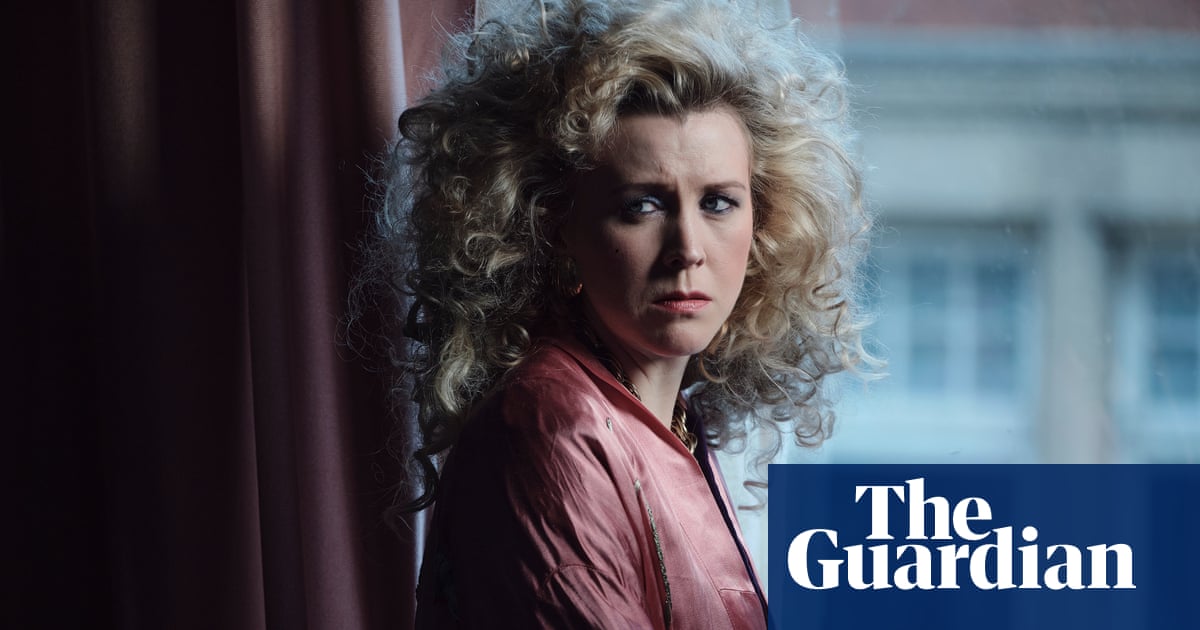Alice Lowe talks about her new film Timestalker, a reincarnation story that explores darkness and obsessive love. According to her, the concept is del
Alice Lowe talks about her new film Timestalker, a reincarnation story that explores darkness and obsessive love. According to her, the concept is delusional and immersive, with a blurring of reality and dreams. As the writer-director-actor, she is particularly drawn to projects that celebrate the power and fragility of the female psyche. “I was having an existential crisis [while filming Timestalker],” Lowe says. “I was like, this time, I just thought, why not kill a load of people? ‘I’ve had killed a lot of people in other films’, I said with a wry smile… I feel like I would just end up killing my family at this point.”
While her last film, the 2016 horror-thriller Prevenge, featured a pregnant serial killer, her new film pushes the boundaries of her comfort zone, exploring themes of obsession, reincarnation and hopeless love. “Even though she’s her own worst enemy, she refuses to believe that she deserves it, and that he doesn’t deserve it”, Lowe describes Agnes’ mindset, the protagonist and hero of Timestalker.
At its heart, Timestalker is a romance novel. Well, sort of. The film follows a protagonist named Agnes through time and space, stalking her romantic interest across countless eras. But she never manages to catch her quarry – and in true cinematic style, she reeks death and destruction through every failed attempt. Love, Agnes learns all too quickly, is also a surefire recipe for self-destruction.
Lowe first began developing Timestalker after meeting her co-director on the film during a period of intense grieving following her mother’s illness. Agnes’ situation struck a chord with Lowe, who found herself drawn into the complexities of her predicament: “I met the actor who plays Agnes just before her mother passed away. That was a transformative moment in my life too… Her story is universal in many ways, no matter where you are”.
Timestalker isn’t just Agnes’ story, nor is it just a passion project from Lowe. Lowe herself admits that the inspiration behind her film is equally her own struggles with hope and helplessness. But don’t worry – those themes come across as more nuanced and less self-indulgent than they sound. Lowe writes of love as a prison and mortality as a persistent guest; she explores dark fantasies in a way both disturbing and mesmerizing… Her obsession with Agnes stems not just from what drives Agnes but Lowe’s own experiences with fear, disappointment, and isolation.
Film, it seems, operates under two main principles of narrative logic: the assumption of audience familiarity and storytelling itself, which is merely an artistic expression of societal pressures… Lowe’s obsession with telling stories that disrupt our preconceptions lies at the heart of it. To her, those narratives belong to the artists who want to create… For women, the constraints on these narratives are amplified.
If Lowe could have her perfect world of filmmaking without sexism or gender biasing her output, she longs to be free: “That’s the main reason why I want equality… equality in the whole of human experience, actually, would be amazing because that way we could solve some big problems”. Then there could be more interesting, experimental films like those by Lars von Trier or Karyn Kusama, which may or may not be received with both critical acclaim or indifference from audiences.
Lowe likes to break the rules too. There’s a rawness, a vulnerability when Lowe portrays Agnes so closely and so honestly within Timestalker. Even her comedy, which plays to be more like… an in-your-face “no more Mr. nice guy”… Lowe’s presence and that of her costars keep the film more light-footed than morose; they’re doing the only thing they are trained for: acting naturally… What Lowe wants ultimately is equal representation in arts.
After seven long years of grueling post-production, rehearsals, and filming her dream of a film through multiple seasons, Lowe claims Timestalker is nothing but another chapter in “my war against the rules”… it’s a romance and Timestalker represents an extraordinary journey of two lovers: Agnes
Lowe believes a more punk sensibility needs to be at the core of British independent film – a more fluid and diverse approach to finance, making, and starring in one’s own flicks…
Conclusion
Timestalker, like Prevenge and all other films by Alice Lowe, is a testament to the limitless potential of horror-comedy and the ways in which it can delve into existential crises, moral ambiguity, and the perils of love. Its delusions of grandeur may sometimes be overwhelming. It seems that Lowe aims to reframe the conversations we’re having about artistic representation – not just feminism – so that we learn more from the stories.
Frequently Asked Questions
-
What is Alice Lowe talking about in terms of themes in Timestalker?
**She speaks about reincarnation, love, and desperate longing; the film shows a love story that cuts short constantly, and another aspect involves the protagonist always ending up dead. - Are there any similarities between Timestalker and any of Alice Lowe’s prior work, such as "Prevenge"?
**Alice Lowe’s two films do share some darker, introspective themes although in contrast, Timestalker tends to be closer to surrealism and it seems Timestalker transcends all boundaries of romance. Prevenge, on one hand, is a typical zombie genre film with twists while Agnes in …This. It’s a great representation for women in power in various roles. However, at the same…(continue for more questions about film history, the way film tells stories, an example film, and on

COMMENTS